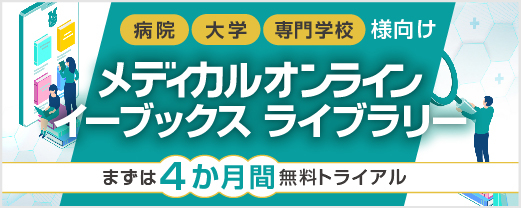アブストラクト
Japanese
| Title | 幼児を育てる母親の主観的幸福感と育児ストレスおよび精神健康度との関連 |
|---|---|
| Subtitle | 原著 |
| Authors | 川野亜津子, 江守陽子 |
| Authors (kana) | |
| Organization | 筑波大学医学医療系保健医療学域, 岩手保健医療大学看護学部 |
| Journal | 母性衛生 |
| Volume | 61 |
| Number | 4 |
| Page | 596-604 |
| Year/Month | 2021 / 1 |
| Article | 原著 |
| Publisher | 日本母性衛生学会 |
| Abstract | 【目的】幼児を育てる母親の主観的幸福感と育児ストレスおよび精神健康度との関連を明らかにする. 【方法】1〜4歳までの幼児を育てる母親272名を対象とし, 質問紙調査(主観的幸福感, 育児ストレス, 精神健康度)を行った. 統計はIBM SPSS Statistic25を用い, 有意水準は5%とした. 【結果】対象者は平均33.5±4.71歳, 93.7%が有職者, 99.2%が婚姻関係にあり, 子どもの数は1人(34.2%), 2〜4人(65.8%)であった. 主観的幸福感は50点未満22名, 50〜80点未満104名, 80点以上146名であり, GHQ-28との相関が認められ(r=-0.433【P<0.001】), 「うつ傾向」(r=-0.467【P<0.001】)および「社会的活動障害」(r=-0.436【P<0.001】)で負の相関が認められた. GHQ-28と育児ストレスには弱い相関が認められた. 【考察】主観的幸福感は, 抑うつ傾向および日常生活を健康に過ごせないことに関連すると示されたことから, 幼児を育てる母親への支援として, 育児そのものへの支援のみならず母親自身に対する支援も必要であることが示唆された. |
| Practice | 公衆衛生学 |
| Keywords | 幼児を育てる母親, 主観的幸福感, 育児ストレス, 精神健康度, mothers raising infants, subjective well-being, child-rearing stress, mental health |
English
| Title | The relationship between subjective euphoria, childcare stress, and mental health in mothers raising infants |
|---|---|
| Subtitle | Original Articles |
| Authors | Atsuko Kawano, Yoko Emori |
| Authors (kana) | |
| Organization | University of Tsukuba, Iwate University of Health and Medical Sciences |
| Journal | Japanese Journal of Maternal Health |
| Volume | 61 |
| Number | 4 |
| Page | 596-604 |
| Year/Month | 2021 / 1 |
| Article | Original article |
| Publisher | Japan Society of Maternal Health |
| Abstract | [Abstract] [Objective] To clarify the relationship between the subjective well-being of mothers raising infants, child-rearing stress, and mental health. [Method] A questionnaire survey (subjective happiness [VAS: Visual Analogue Scale], childcare stress scale [Mother's Childcare Stress Scale], and mental health scale [GHQ-28: The General Health Questionnaire]) was administered to 272 mothers raising infants aged 1 to 4 years living in urban areas in the Tohoku region. IBM SPSS ver.25 was applied with significance set at 5%. [Results] The average subjects were 33.5 +- 4.71 years old, 93.7% were employed, 99.2% were married, and the number of children was 1 (34.2%) and 2 to 4 (65.8%). In subjective well-being, 22 scored less than 50 points, 104 scored 50 to 80 points, and 146 scored more than 80 points. There was a correlation with GHQ-28 (r=-0.433, p<0.001), and negative correlations were observed with "Depressive Tendency" (r=-0.467, p<0.001) and "Social Dysfunction" (r=-0.436, p<0.001). A weak correlation was observed between GHQ-28 and child-rearing stress. [Consideration] Since subjective well-being was shown to be related to depressive tendency and the inability to spend daily life in good health, this suggests a need for support for mothers as well as infants. |
| Practice | Public Health |
| Keywords | mothers raising infants, subjective well-being, child-rearing stress, mental health |
- 全文ダウンロード: 従量制、基本料金制の方共に770円(税込) です。
参考文献
- 1) Diener E, Suh EM, Lucas RE, et al. Subjective well-being: Three decades of progress. Psychol Bull. 1999, 125, 276-302.
- 2) 寺崎正治, 綱島啓司, 西村智代. 主観的幸福感の構造. 川崎医療福祉学会誌. 1999, 9(1), 43-48.
- 3) 島井哲志, 大竹恵子, 宇津木成介, 他. 日本版主観的幸福感尺度(Subjective Happiness Scale: SHS)の信頼性と妥当性の検証. 日本公衆衛生誌. 2004, 51(10), 845-853.
- 4) 伊藤裕子, 相良順子, 池田政子, 他. 主観的幸福感尺度の作成と信頼性・妥当性の検討. 心理学研究. 2003, 74(3), 276-281.
- 5) 門田昌子, 寺崎正治. パーソナリティーと主観的幸福感との関連-対人相互作用におけるソーシャルスキルの役割-. 川崎医療福祉学会誌. 2005, 15(1), 67-74.
残りの22件を表示する
- 6) 笹川果央理. 自尊感情が主観的幸福感へ及ぼす影響の検討 自己価値の随伴性からの整理. パーソナリティー研究. 2015, 24(2), 112-123.
- 7) 安達悠子, 山崎赳志. 高校生の主観的幸福感と友人関係の関連. 東海学院大学紀要. 2017, 1(1), 157-163.
- 8) 加藤剛寿, 山本八千代, 草野知美, 他. 生活習慣病予防を見据えた思春期からの食育の検討 大学生の食生活と主観的幸福感の調査から. 思春期学. 2019, 37(3), 271-284.
- 9) 磯和壮太朗, 野口直樹, 三宮真智子. 大学生のSense of Coherenceが抑うつと主観的幸福感に及ぼす影響に対する自発的な自己観の好ましさによる媒介効果の検討. J Health Psychol Res. 2019, 31(1-2), 155-164.
- 10) 加藤孝士. 母親の主観的幸福感とソーシャル・サポートの関係-中心的に関わる人物および何気なく関わっている人数に着目して-. 小児保健研究. 2012, 71(3), 450-454.
- 11) 清水嘉子, 関水しのぶ, 遠藤俊子, 他. 母親の育児幸福感尺度の開発と妥当性の検討. 日本看護科学学会誌. 2007, 27(2), 15-24.
- 12) 小森やえ子, 武田江里子. 過疎地域で乳幼児を子育て中の母親の主観的幸福感に関連する要因. 母性衛生. 2017, 58(2), 329-337.
- 13) 清水嘉子, 伊勢カンナ. 母親の育児幸福感と育児事情の実態. 母性衛生. 2006, 47(2), 344-351.
- 14) 宮木寿子, 木崎智子, 中島涼子他: 乳幼児期における母親の育児問題-乳児期の発育発達と母親の育児問題との関係-. 藍野学院紀要. 2003, 17, 123-128.
- 15) 清水嘉子. 生後1歳6か月の子どもをもつ母親の育児への自信. 小児保健研究. 2015, 74(3), 453-459.
- 16) 松林公蔵, 木村茂昭, 岩崎智子, 他. Visual Analogue Scaleによる老年者の主観的幸福度の客観的評価I-標準的うつ尺度との関連-. 日老医誌. 1992, 29, 811-816.
- 17) 佐藤達哉, 菅原ますみ, 島悟, 他. 育児に関するストレスとその抑うつ重症度との関連. 心理学研究. 1994, 64(6), 409-416.
- 18) 佐藤達哉. 育児期母親の育児関連ストレス, サポート, 対処に関する基礎的研究. 児童育成研究. 1988, 6, 42-55.
- 19) Cutrona CE. Causal attributions and perinatal depression. J Abnorm Psychol. 1983, 92, 161-172.
- 20) Goldberg DP, Hillier VF. A scaled version of the General Health Questionnaire. Psychol Med. 1979, 9, 139-145.
- 21) 中川泰彬. 日本版GHQ精神健康調査票の研究. Journal of Psychometry. 1985, 21, 2-7.
- 22) 下地清香, 我如古愛花, 小八重佑果. 乳幼児をもつ母親の主観的幸福感についての研究-地域子育て支援拠点事業の利用・非利用者の比較検討-. 沖縄の小児保健. 2018, 45, 9-16.
- 23) 津間文子, 林田馨, 木下八重子, 他. 保育所を利用している父親・母親の主観的幸福感 雇用形態・世帯の経済状況・世帯構成との関連. インターナショナルNurs Care Res. 2017, 16(1), 61-70.
- 24) 清水嘉子, 関水しのぶ. 母親の育児ストレス尺度 短縮版作成と妥当性の検討. 子どもの虐待とネグレクト. 2010, 12(2), 261-270.
- 25) 清水嘉子, 関水しのぶ, 遠藤俊子, 他. 育児中の母親の幸福感 就労別にみた母親の年齢, 子ども数, 末子年齢による幸福感への影響. 母性衛生. 2010, 51(2), 367-375.
- 26) 清水嘉子. 生後3カ月の子どもをもつ母親の育児への自信 育児幸福感, 育児ストレス, 蓄積的疲労, 属性の検討. 小児保健研究. 2013, 72(5), 672-679.
- 27) 澤田あずさ, 明野聖子, 吉森友香, 他. 1歳6ヵ月児の父親の労働時間・育児参加時間からみた母親の育児幸福感. 北海道医療大学看護福祉学部学会誌. 2009, 5(1), 13-21.



